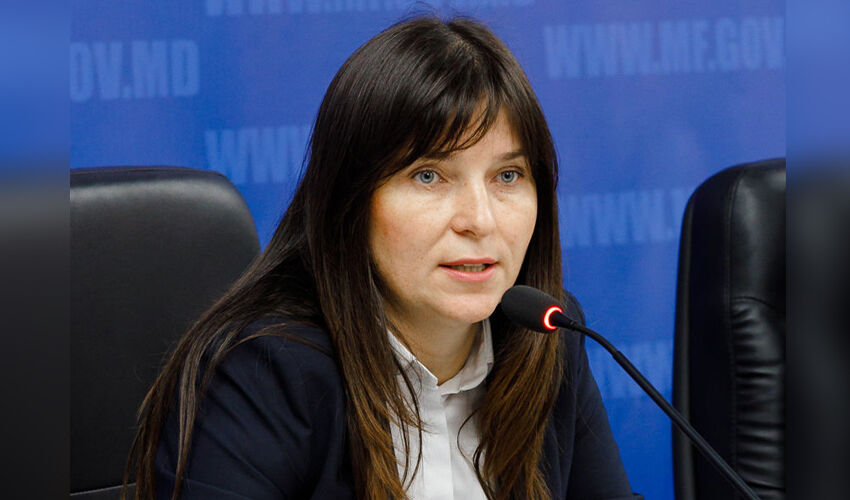
Victoria Belous
We are talking about orders from such online platforms as Temu, Joom, Shein, AliExpress. According to the minister, two main options are being considered – lowering the VAT exemption threshold for imports or introducing administrative fees.
“We are talking about solutions applied in other EU countries as well: reducing the limit of VAT-exempt parcels, introducing taxes for their administration or the obligation for residents to register and declare taxes for parcels delivered on the territory of Moldova,” the minister explained.
She specified that there is no final decision yet. However, the Finance Ministry is looking for the most efficient method of regulating the parcel trade. In any case, the new government, which will deal with taxation in this sector of economy, will decide on this issue.
It should be noted that this summer, the head of the General Directorate of Tax and Customs Policy of the Ministry of Finance Corina Alexa told reporters that the Ministry of Finance has been monitoring the dynamics of cross-border trade in postal items for more than two years and constantly analyzes data on their volume. Thus, in the first half of 2025 alone, the number of parcels increased by 20 percent and budget revenues increased by 15 percent thanks to the regulation of parcels worth more than 150 euros. The institutions conduct periodic monitoring and analyze the mechanisms already implemented at the EU level in order to apply them in Moldova.
Corina Alexa specified that a measure is planned to be launched in the fall of 2025, which will gradually reduce the maximum exemption from 150 euros. But most importantly, the possibility of taxing parcels, regardless of their value, is being considered. It pointed to the lack of a legal framework to implement some of the measures. However, a package of amendments related to this sector is being prepared in the fiscal policy for 2026. It was emphasized that this draft would be considered a little later than usual – after the formation of the new Parliament.
Recall that on the eve of the parliamentary elections, the taxation of parcels from China was discussed quite keenly. After the statements of the Ministry of Finance about the possible tightening of measures, the situation was attempted to level the situation by the government spokesman Daniel Wode, who said that the Cabinet allegedly adheres to a different point of view. There were also those who tried to shift the issue to the political plane, linking it to the upcoming parliamentary elections.
One way or another, the Ministry of Finance did not deviate from the set course, and in the fall (that is, now) confirmed its intentions – Chinese parcel traffic will fall under a special regime.
In the sector, the situation remains alarming. According to official data, in 2024, the revenues of the postal services market grew by 35% to 633 million lei. At the same time, incoming international traffic (namely, parcels!) accounted for almost half of the total revenue of postal services. The facts are impressive: last year, 10 million parcels with goods worth about 30 euros each were imported into Moldova. Only through Nova Poshta, the country received 3 million parcels with clothes, footwear, cosmetics, electronics and household appliances, most of which came from the famous sites Temu, Joom, Aliexpress, iHerb, Shein, MakeUp, etc. Thus, the annual turnover of the foreign parcels market in Moldova is estimated at least 300 million euros.
At the same time, almost all marketplaces (both Chinese and American) do not pay import duties and VAT, which reduces the final cost of their goods in Moldova by 30-35%. As a result, free parcel trade resulted in the state budget underpaying more than 1.3 billion lei in VAT, customs duties and income tax.
Moldovan merchants have repeatedly drawn the attention of the authorities to unequal conditions and disloyal competition. The lack of taxation of parcels worth less than 150 euros seriously hits legal business: sales of mass goods have dropped by a third. And in all local retail formats – both offline and online.
At the same time, a number of other problems arise. In the case of Chinese parcels, no one is responsible for the safety of imported goods, or for the amount of waste brought into the country and its recycling.
Retailers pointed to the experience of the European Union. In the EU, the dominance of imports through the postal channel began to be solved a few years ago: there the volume of cheap parcels reached 4 billion euros. Now any parcel from outside the EU is subject to VAT, regardless of its value. The IOSS (Import One-Stop Shop) system has been introduced – online sellers (including platforms like AliExpress, Temu and Shein) are required to register and pay VAT. The EU also operates the ICS2 advance notification system: every parcel must be accompanied by accurate digital information about its contents, value and sender. In addition, the EU has introduced limits on the number of parcels from one seller.

